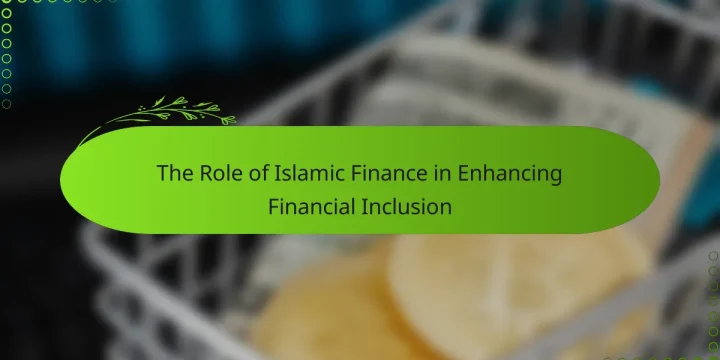
What is Islamic Finance and its Role in Financial Inclusion? Islamic finance is a financial system that operates in accordance with Islamic law (Sharia). It prohibits interest (riba) and promotes risk-sharing and ethical investments. Islamic finance plays a crucial role in financial inclusion by providing access to financial services for underserved populations. It offers products like microfinance and profit-sharing investments tailored to the needs of low-income individuals. According to the Islamic Financial Services Board, the global Islamic finance market was valued at over $2 trillion in 2021, indicating its significant growth. This financial system encourages social welfare and economic development, aligning with the principles of justice and fairness. By offering Sharia-compliant financial products, Islamic finance helps bridge the gap for those excluded from traditional banking systems. How does Islamic Finance…








